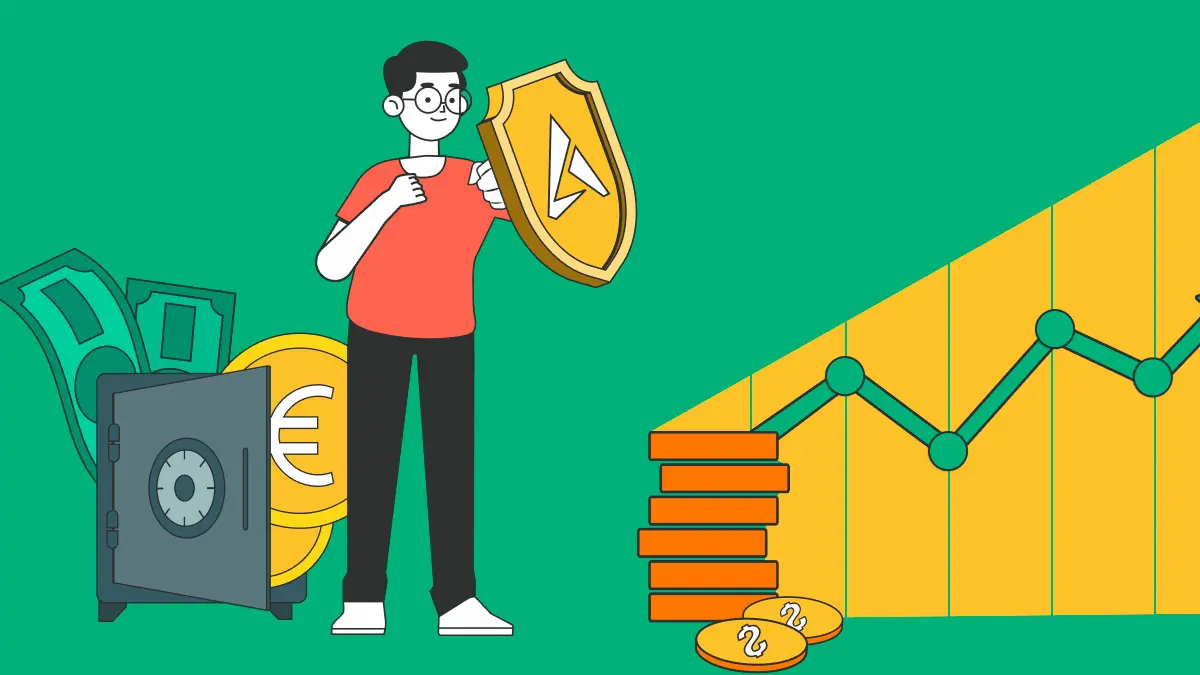Staking crypto is the process of locking a certain amount of crypto assets to support the operation of a blockchain network and receive rewards in return. It is similar to saving money in a bank account where you earn interest on your funds. However, unlike banks, staking does not require intermediaries. You can manage your assets independently and receive rewards directly from the network.
Earlier we wrote – What Are Investments and How to Start Investing from Scratch?
How Does Staking Crypto Work?
Staking crypto is a way to earn passive income using your crypto assets. It is similar to a bank deposit, but instead of earning interest, you receive rewards in the form of new coins. To start staking, you need to follow these steps:
1. Choose a Cryptocurrency for Staking Crypto
Not all cryptocurrencies support staking. Some of the most popular coins for staking include Ethereum, Cardano, Solana, and Polkadot.
2. Create a Crypto Wallet
You will need a crypto wallet that supports staking to store your coins. There are many different types of wallets, such as Trustee Wallet or MetaMask, so it is important to choose one that suits your needs.
3. Lock Your Coins
Once you have a wallet, you will need to lock your coins in a staking pool or on your own node. The number of coins you need to lock will depend on the cryptocurrency and staking pool.
4. Receive Rewards
Once your coins are locked, you will start receiving rewards. The amount of reward will depend on the number of locked coins, the cryptocurrency, and the staking pool.

It is important to remember that staking involves certain risks. The price of a cryptocurrency can fall, leading to a devaluation of your coins. Additionally, there is a risk of losing coins if the wallet or staking pool is hacked. Before starting staking, it is crucial to conduct your own research and understand the associated risks.
Advantages of Staking Crypto
Staking crypto offers several advantages that make it attractive to investors and blockchain enthusiasts. Here are some key points:
- Passive Income: Staking allows you to earn regular passive income from your crypto assets. This happens because you lock a certain number of your coins, which are used to support the blockchain network. In return, you receive rewards in the form of interest from the annual percentage yield (APY).
- Network Support: Staking plays a vital role in ensuring the security and decentralization of the blockchain network. When you lock your coins, you become a validator who helps verify transactions and protect the network from fraud.
- Accessibility: Unlike cryptocurrency mining, which requires powerful and expensive equipment, staking is accessible to anyone who owns a certain amount of cryptocurrency. Minimum amounts for staking can vary depending on the specific coin and platform.
- Energy Efficiency: Staking is significantly more energy-efficient than mining. This is because it does not require computational power to solve complex mathematical problems. This makes staking a more environmentally friendly option for participating in cryptocurrency networks.
Risks of Staking Crypto
Staking crypto can be a great way to earn passive income, but like any investment, it comes with certain risks. Here are some key risks to consider before starting staking:
- Cryptocurrency Volatility: The price of cryptocurrencies can fluctuate sharply, both upwards and downwards. This means you may lose some of your investment if the value of the coins you have locked for staking falls.

- Validator or Platform Risks: Choosing an unreliable validator or staking platform can lead to loss of your funds. Some validators may be negligent or outright fraudulent, and platforms may suffer from cyberattacks or technical failures.
- Technical Risks: Staking crypto can be associated with certain technical risks. For example, a failure in your staking system may lead to loss of coins.
- Liquidity Reduction: When you lock your coins for staking, you cannot freely use them. This can lead to liquidity issues if you need funds urgently.
- Regulatory Risks: Cryptocurrency regulations are constantly evolving, and new rules may negatively impact staking.
What is Staking Crypto? How to Invest and Earn from It? – Watch the Video
If you want to learn more about what staking crypto is and how you can earn from it, watch the video:
Final Thoughts
Staking crypto can be a great way to diversify your investment portfolio and earn passive income. It is a simple and accessible way for anyone who owns cryptocurrency to contribute to the blockchain network and receive rewards for it. Before starting staking, it is important to thoroughly research the cryptocurrency and staking pool you plan to invest in. Do not invest more than you can afford to lose. Keep your crypto assets in a safe place. Staking crypto can be an excellent way to grow your cryptocurrency investments, but it is important to approach it with wisdom and caution.
Q&A About Staking Crypto
Crypto staking is a process by which cryptocurrency holders can earn rewards for participating in transaction validation on blockchain platforms that use the Proof of Stake (PoS) consensus mechanism. Participants in staking “lock” a certain amount of their coins as collateral to ensure the accuracy of the transactions they help validate.
A cryptocurrency owner engages in staking by freezing a certain amount of coins in their cryptocurrency wallet, often through a specialized platform or exchange that supports staking. The frozen coins are used to support the operational infrastructure of the network, including transaction validation. In return, participants receive rewards, usually paid in cryptocurrency.
The main advantages of staking include the ability to earn passive income through rewards for participating in transaction validation. Staking also contributes to the security and stability of the network, as more frozen funds mean a higher resistance to attacks on the network.
Risks associated with staking include liquidity reduction, as frozen coins cannot be used or sold while participating in staking. There is also the risk of cryptocurrency volatility, which can significantly change in price, potentially reducing the value of initial investments.






